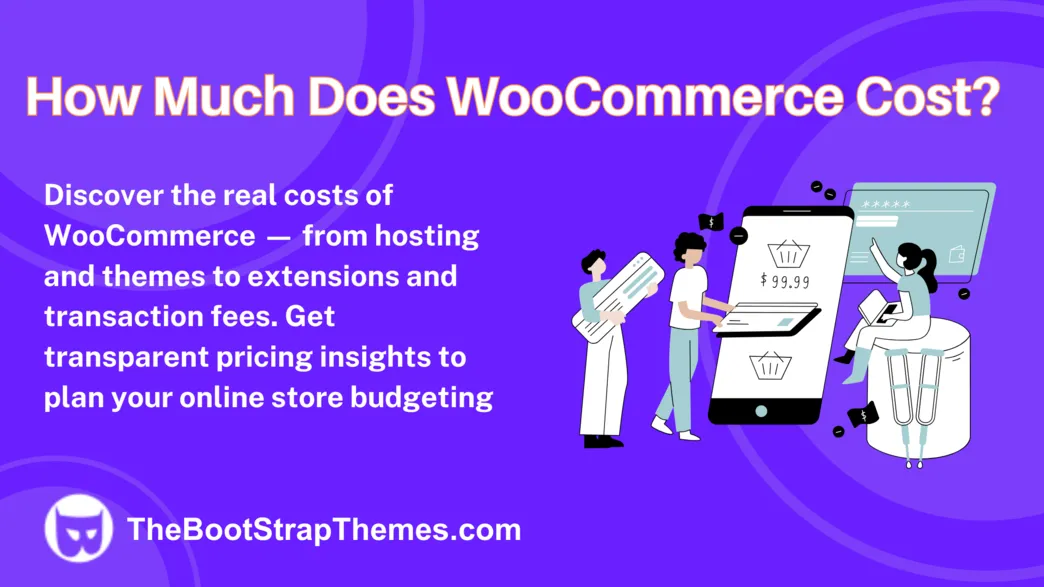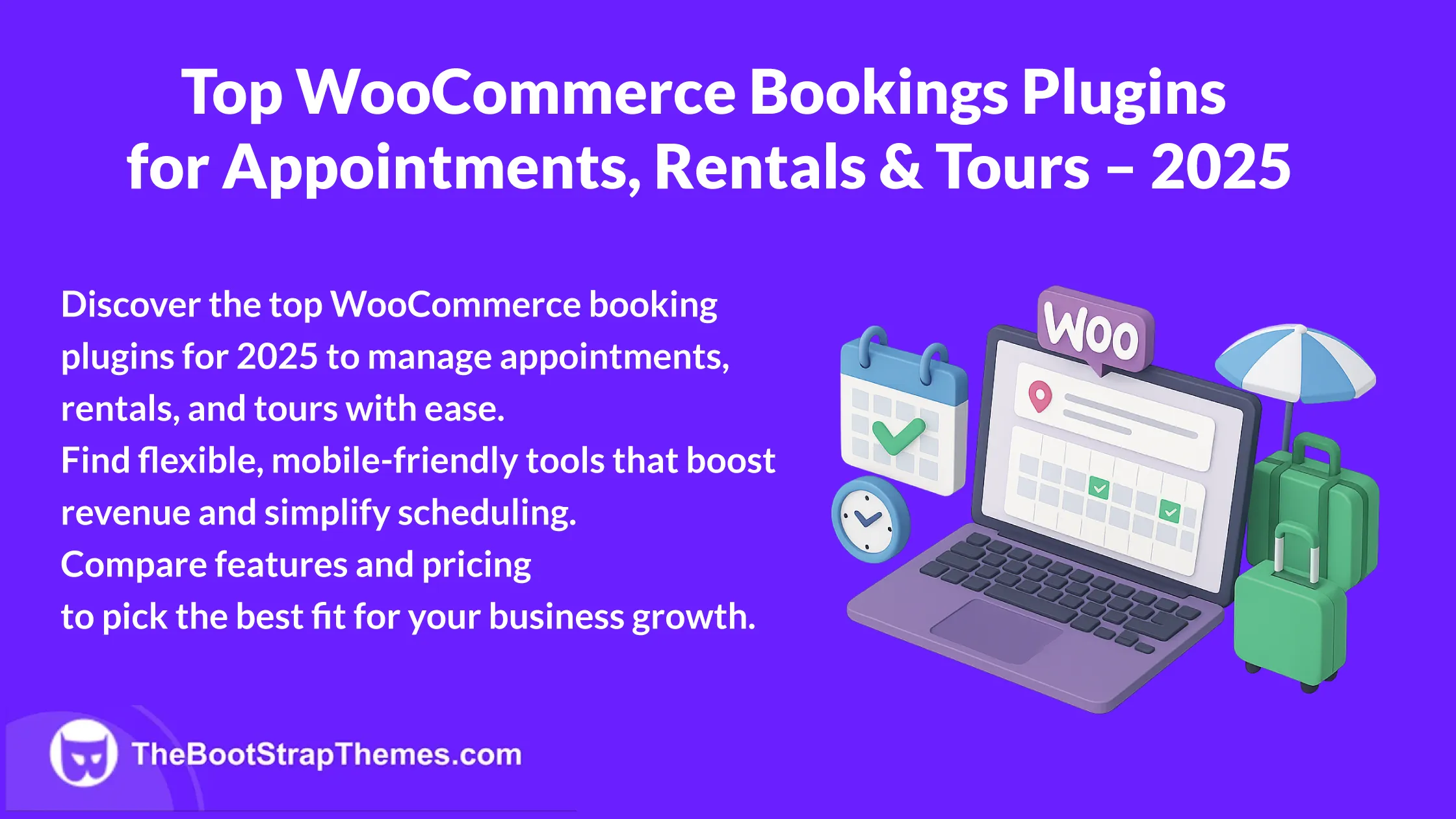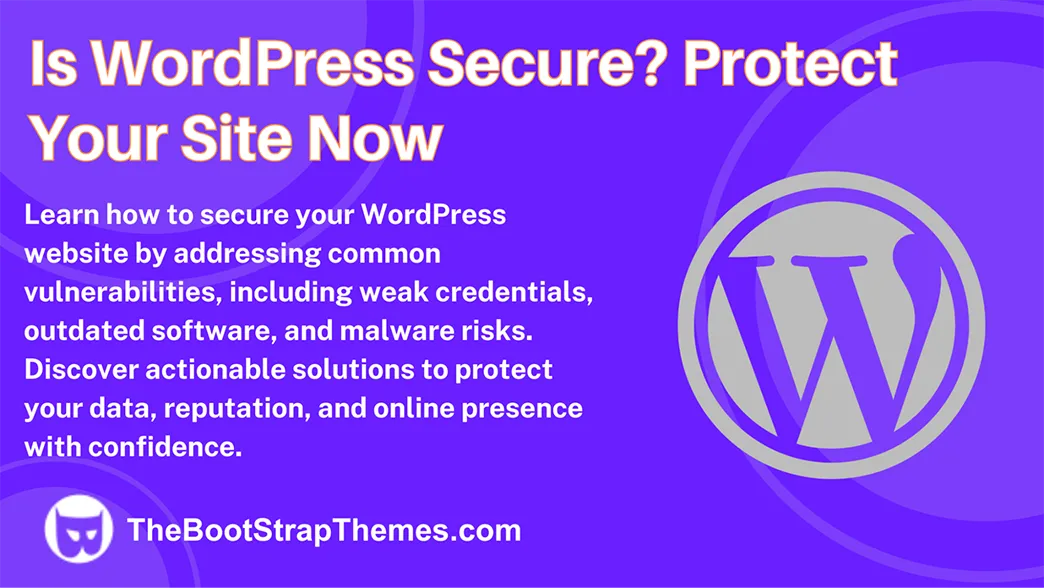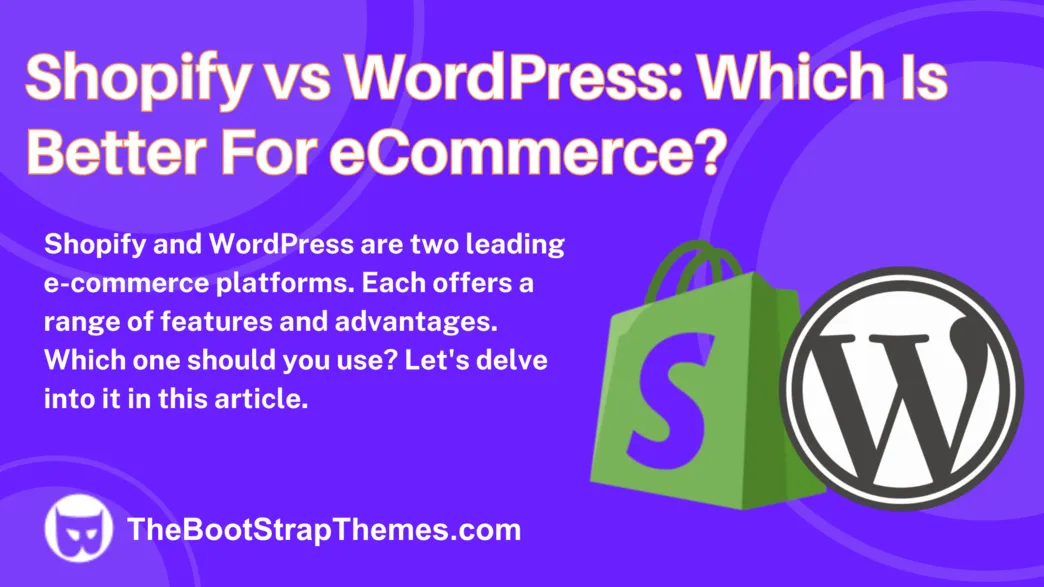
The BootStrap Team Intro: James Riddle who wrote an article on solving one of the top errors on WordPress, is back for another helpful article. This time he’s here to help you choose from the different e-commerce and site builder options out there. Check it out:
Looking to build a website from scratch? Using website builders and eCommerce platforms is a great alternative to hiring professional developers, especially if you’re on a tight budget. However, finding the perfect software for building a website can be tricky for beginners. This article was created to help you identify the main features of website builders and eCommerce platforms. Keep reading to learn more about the most popular software for creating websites.
Website builders
A website builder is a software that allows users to construct a website without manual code editing. Website builders usually have a user-friendly interface and all the tools needed to create a fully functioning website. Additionally, they are ideal for small business owners and individuals in need of a website.
Before choosing a website builder, figure out what you want to see on your website. Consider whether your business requires any of these features:
- Blog section
- Online store
- Image or video gallery
- Contact form
- Membership options
If you don’t really know what your business needs, check out your competitors’ websites for inspiration. The website builder you choose should provide the technical requirements needed to support your business as it grows. For instance, if you have a blog section, choose a website builder that allows adding numerous blog posts. Or choose a website builder with capabilities to administer your website as you’ll be selling more products in the future.
Here are some of the most popular and effective website builders.
Self-Hosted WordPress
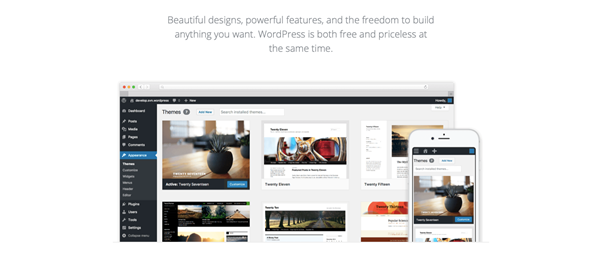
WordPress is the most popular content management system currently available on the market. In fact, 35% of all websites on the Internet are WordPress-powered.
The self-hosted version of WordPress is a free and open-source website builder. It’s relatively easy to use and can power different kinds of websites, including online stores, social networks, blogs, websites with a membership option, and many more. Another great thing about WordPress is the themes. There are thousands of WordPress themes available for download if you’re looking to customize your website design.
Plugins are another category of WordPress add-ons. Plugins offer numerous optimization solutions to maximize the performance and functionality of your website. For example, there are caching plugins that speed up your website and thus help you to get better search engine rankings. And the good news is that the majority of plugins have free versions.
There are different easier-in-use alternatives to WordPress, like the Wix website builder. Keep in mind though, that Wix’s plans don’t include email accounts. They have an integration with G Suite, however, that adds at least $6 to your monthly bill, whereas most WordPress hosts include email account by default.
WordPress does require manual management, though. You will need to update WordPress, plugins, and backup your website regularly.
Constant Contact Website Builder
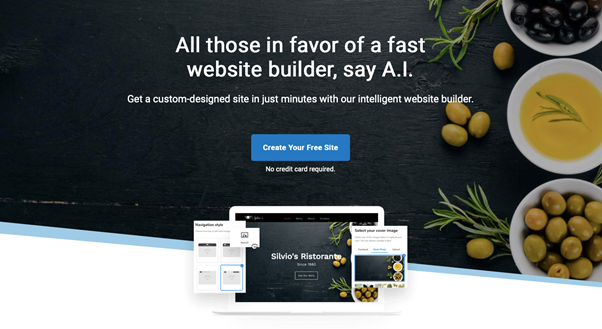
Constant Contact is not only an email service provider, but they also offer free website building software. Constant Contact software has artificial intelligence using your Facebook business page to customize and create your website. This may sound complicated, but the only thing you need to do is to insert a link to your Facebook page and let the software do its work. You have an option to further customize your website after you get a “draft” of a page.
There is also an option of creating a design based on your business niche or industry in case you don’t have a Facebook page. You can also use a website builder if you wish to design and create a website all by yourself. Constant Contact allows you to upgrade your plan if you’d like to customize your domain name.
Keep in mind that website builders, like Constant Contact, are easy and fast to use, while WordPress is more complicated but comes with more features.
Other options
There are other great website builders, like Gator by HostGator, Domain.com, and Wix.
eCommerce Platforms
An eCommerce platform is a software application that allows users to manage their stores for selling online. Ecommerce platforms usually come with the option of monitoring marketing, sales, and operations. Your choice of software will have a big impact your our business operations and profitability.
When choosing an eCommerce platform, consider the following:
- What are the essential website features for your business?
- What are the integrated payment options you’d like to see on your website?
- Would you like to integrate social media?
- What kind of customer service do you want to provide?
- Which technical requirement should the software meet to support your business as it grows further?
Once you’ve thought through these questions, let’s move a couple of the most popular eCommerce software
BigCommerce

BigCommerce is a paid eCommerce platform that allows businesses to launch and manage stores online. The platform offers customizable templates you can use to design your website. Regular updates, fast speed, and security come in the package along with other useful built-in features. For example, there are conversion rate optimization options, like improved product search, product reviews, and cart abandonment. BigCommerce will handle the server management leaving you more time to run your business.
Native integration with WordPress is another important feature. Also, BigCommerce supports all payment gateways, including PayPal, Visa, Apple Pay, Amazon Pay, and Chase Pay.
Shopify

Shopify is another popular all-in-one hosting eCommerce platform. With Shopify, you don’t need to install updates, backup your website, or manage software manually. Also, the platform offers easy marketing solutions, full inventory management, and an unlimited number of products. You can design your website choosing from numerous suggested templates. Shopify is a great solution to create a fully-functioning website without spending a lot of time.
You can integrate third-party payment gateways, or there is an integrated payment solution called Shopify Payments.
Other options.
Other popular ecommerce platforms include Magento, Volusion, WooCommerce, and others.
Final thoughts
Choosing software for building a website is challenging because there are just so many of them! We recommend carefully evaluating the needs of your business first. And then, thoroughly research the platforms to make sure they meet your requirements. We hope this article helped you to decide which kind of software suits you better.
Author Bio:
James Riddle is a freelance writer with a passion for new technologies, marketing trends and branding strategies. He is always seeking to discover new ways for personal and professional growth and is convinced that it’s always important to broaden horizons. That’s why James develops and improves his skills throughout the writing process to help and inspire people.

